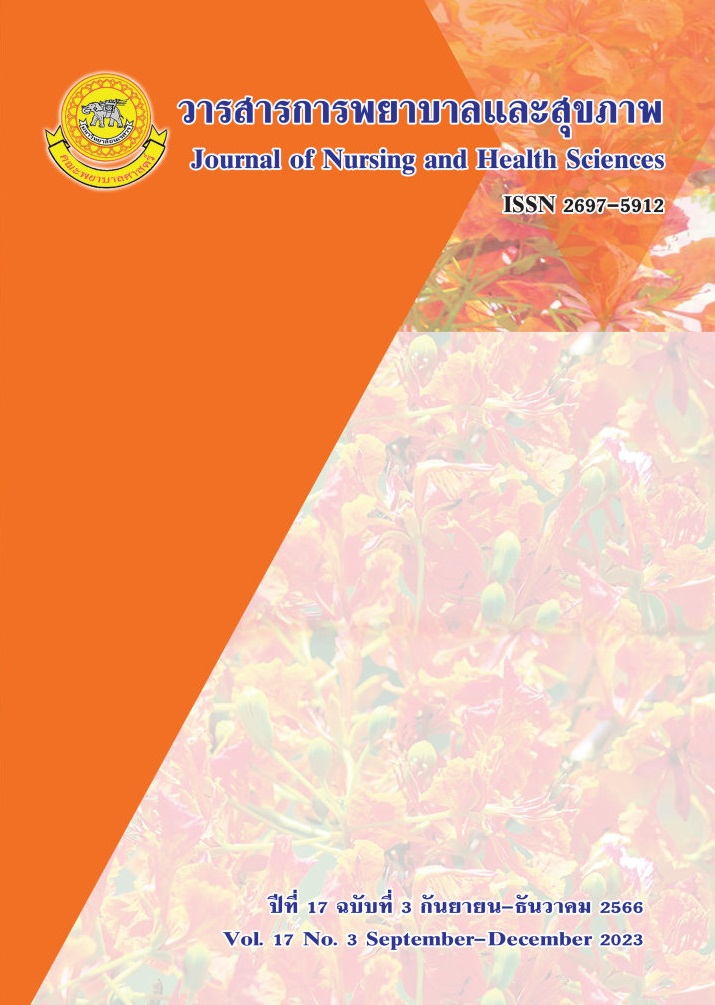เจตคติ แรงจูงใจ และพฤติกรรมของวัยรุ่นที่พร้อมจะประกอบอาชีพเกี่ยวกับเกม
Main Article Content
บทคัดย่อ
งานวิจัยครั้งนี้เป็นการวิจัยเชิงพรรณนา มีวัตถุประสงค์เพื่อศึกษาเจตคติ แรงจูงใจ และพฤติกรรมของวัยรุ่นที่พร้อมจะประกอบอาชีพเกี่ยวกับเกม สัมภาษณ์เชิงลึกกับผู้ให้ข้อมูล ได้แก่ วัยรุ่นอายุระหว่าง 13-18 ปี และผู้ปกครอง โดยใช้แบบสัมภาษณ์กึ่งโครงสร้างและวิเคราะห์โดยวิธีการวิเคราะห์เนื้อหา เพื่อให้ได้ข้อมูลเชิงคุณภาพ สัมภาษณ์ระหว่างพฤษภาคมถึงมิถุนายน พ.ศ. 2565 รหัสโครงการ MU-MOU 170/2565 (IRB3) ผลการศึกษาพบว่า เจตคติต่ออาชีพที่เกี่ยวกับเกม มีมุมมองต่อลักษณะของอาชีพแบ่งเป็น 3 มุมมอง คือ 1) อาชีพยังไม่มั่นคง รายได้ไม่แน่นอน เป็นเพียงช่องทางหารายได้เสริม 2) อาชีพมีความมั่นคง สร้างรายได้ต่อเนื่อง ซึ่งขึ้นอยู่กับความสามารถของตนเอง 3) เป็นอาชีพที่น่าจะเติบโตในอนาคต ด้านแรงจูงใจที่จะการประกอบอาชีพเกี่ยวกับเกม ได้แก่ 1) ชื่นชอบการเล่นเกม 2) ความสบาย อิสระในการทำงาน 3) ความท้าทาย พิสูจน์ความสามารถ 4) อิทธิพลของการรับชมสื่อ 5) ต้องการเป็นเหมือนบุคคลที่ชื่นชอบ 6) การยอมรับจากผู้อื่น 7) รายได้ 8) โอกาสสู่อาชีพอื่นในวงการเกม พฤติกรรมของความพร้อมประกอบอาชีพแบ่งเป็น 3 กลุ่ม คือ 1) ผู้ที่มีการศึกษาข้อมูลเบื้องต้น 2) ผู้ที่มีการฝึกฝนทักษะอย่างจริงจังและในปัจจุบันมีการทดลองทำเป็นงานอดิเรก 3) ผู้ที่เคยมีการฝึกฝนทักษะอย่างจริงจังและเคยทดลองทำเป็นงานอดิเรก แต่ปัจจุบันหยุดทำชั่วคราว โดยสรุป ความพร้อมที่จะประกอบอาชีพเกี่ยวกับเกมของวัยรุ่นนั้นมีลำดับขั้นพฤติกรรม ซึ่งแต่ละขั้นจะต้องมีวินัย ความรับผิดชอบ ใฝ่รู้ ไม่ทิ้งการเรียน มีแผนสำรองอาชีพอื่น การสนับสนุนจากครอบครัวที่ดี และความพร้อมของอุปกรณ์
Article Details

อนุญาตภายใต้เงื่อนไข Creative Commons Attribution-NonCommercial-NoDerivatives 4.0 International License.
เอกสารอ้างอิง
Adecco Thailand. (2019-2021). Adecco Thailand's Children Survey. Retrieved 28 Feb 2023 from https://adecco.co.th/th/knowledge-center/detail/children-dream-career-survey-2019. [In Thai].
Ajzen, I., & Fishbein, M. (1977). Attitude-behavior relations: A theoretical analysis and review of empirical research. Psychological Bulletin, 84(5),888-918. https://doi.org/10.1037/0033-2909.84.5.888
Bandura, A. (1997). Self-Efficacy : The Exercise of Control. New York W.H.Freeman and company.Banyai F, Zsila A, Griffiths M.D., Demetrovics, Z.& Kiraly, O. (2020). Career as a Professional Gamer: Gaming Motives as Predictors of Career Plans to Become a Professional Esport Player.Front. Psychol. 11(1866). doi: 10.3389/fpsyg.2020.01866
Budsritarad, J. (2020). Enhancement of career readiness of high school students through guidance activities. Master Thesis (Guidance psychology),Srinakharinwirot University. [In Thai].
Chantavanich, S. (2010). Qualitative Research (18 Ed.).Bangkok : Chulalongkorn University Press.[In Thai].
Dunlayaprapha, D. (2015). The study of the effect of personal information, motivation to game playing behavior of game playing to imitation and violence behavior in daily life of Thailand.Master Thesis (M.B.A), Bangkok University.[In Thai].
Edwards, S. B. (2017). Professional Gaming Careers.Chicago: Norwood House Press.Electronic Transactions Development Agency:ETDA. (2021). Thailand Internet User Behavior2020. Retrieved 10 Dec 2022 from: https://www.etda.or.th/th/newsevents/pr-news/ETDAreleased-IUB-2020.aspx. [In Thai].
Kanksawiwat, N. (2022). A qualitative study on professional gamers : characteristics, career path, and psychosocial impacts. Master Thesis (Child, adolescent and family psychology),Mahidol University. [In Thai].
Limsuwan, N. (n.d.). Mental Development. Retrieved 2 Feb 2023 from https://www.rama.mahidol.ac.th/ramamental/generalknowledge/child/06242014-1920. [In Thai].
Lloyd, M.A. (1985). Adolescence. New York : Harper &Row, Publishers.Office of the National Economic and Social Development Council:NESDC.(2019). E-Sport :Situations, Impacts and Regulation Guidelines.Thailand's Social Situation and Outlook in Q1/2019. 17(2), 30-39. [In Thai].
Piamyoosuk, T. (2007). Communication behavior in online game playing. Master Thesis (Communication Arts), Chulalongkorn University. [In Thai].
Podhisita, C.(2019). Sciences and Arts in Qualitative Research (8 Ed.). Bangkok : Amarin Printing and Publishing Public Company Limited. [In Thai].
Richard, M.R., &Edward, L.D. (2000). Intrinsic and Extrinsic Motivations: Classic Definitions and New Directions. Contemporary Educational Psychology,25(1), 54-67. doi.org/10.1006/ceps.1999.1020 Seo, Y., & Jung, S.-U. (2016). Beyond solitary play in computer games: The social practices of eSports.Journal of Consumer Culture. 16(3), 635-655. https://doi.org/10.1177/1469540514553711
Singhwee, C. (2015). Attitude and altruistic behavior toward older persons of students of faculty of social sciences at Kasetsart university. Journal of social work, 23(2), 55-78. [In Thai].


